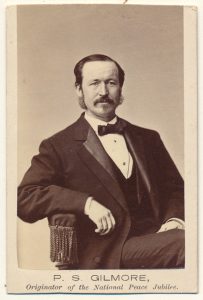
P. S. Gilmore: Pioneer on the Bandstand and in the Studio
If you were a young musician in the late 19th century, you most likely would have aspirations to be in Gilmore’s band. This band was
R. S. Baker has appeared at several Ragtime festivals as a pianist and lecturer. Her particular interest lies in the brown wax cylinder era of the recording industry, and in the study of the earliest studio pianists, such as Fred Hylands, Frank P. Banta, and Frederick W. Hager.

If you were a young musician in the late 19th century, you most likely would have aspirations to be in Gilmore’s band. This band was
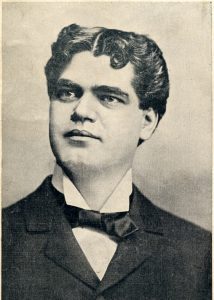
In this column I have written several times about singer Len Spencer, and you’d think there wasn’t much more to say about him, but he
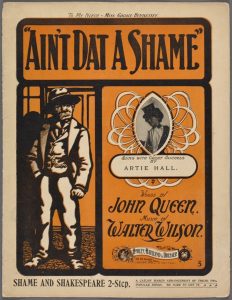
We all know the blues, a musical genre that includes a 12-bar verse and chorus. While this is true, in the early 20th century, this
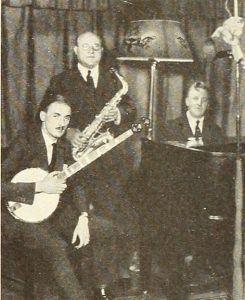
There was a time when the saxophone was a very obscure, regional instrument. The instrument only became one of the most utilized at the beginning
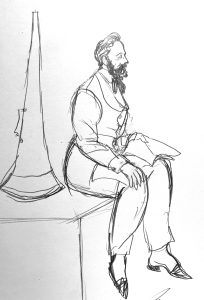
Acoustic recordings of whistlers aren’t for everyone, but there was one whistler who I would consider many levels better than the others. He had a

The banjo was an essential mode of entertainment in the latter 19th century, but often it was accompanied by other instruments, usually piano. There were,
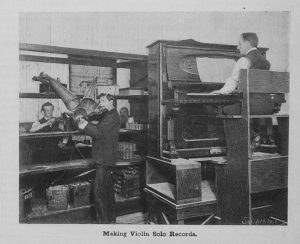
In the acoustic era, recording the violin was always a challenge. Even as the technology improved, the results didn’t always work out the best. In
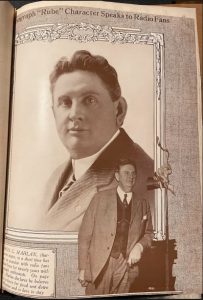
When radio became all the rage in the middle 1920s, it was seen as a threat to the phonograph business. Companies like Victor were very
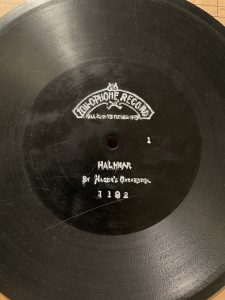
When collecting records, we can only hope that each record we acquire plays well enough so we can enjoy its contents. Collecting acoustic era recordings
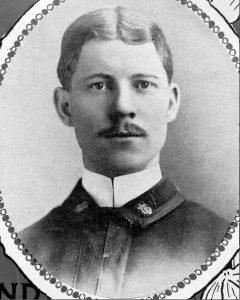
In several articles I have written about performers whose siblings got into recording, this seemed to have been a more common pattern than expected. To
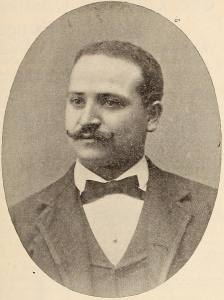
Before researching him, I had assumed that there wouldn’t be much on Frank S. Mazziotta, but I was wrong. As historians, we can only hope
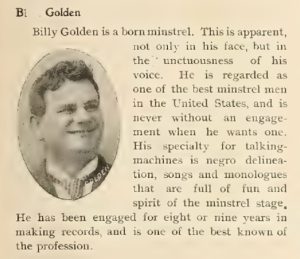
When listening to acoustic era recordings, some performers will usually turn people off right away, one of these performers is Billy Golden. He specialized in
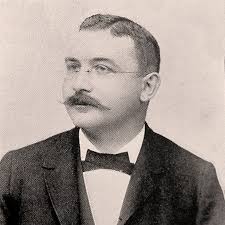
In this column I have written about many figures who were instrumental in the acoustic recording era, but often go unnoticed. One figure who fits
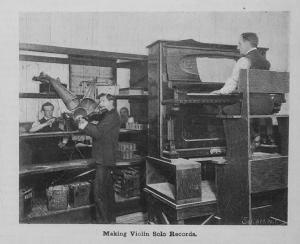
Historically, many of us have been told that recording the piano in the acoustic era (before 1925) was extremely difficult, and that because of this
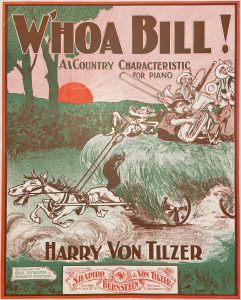
When looking through acoustic era recordings, it can be easy to assume that the more common songs we see must have sold well in sheet

In the beginning of recording, among the first things to be recorded regularly were orchestras. Recording so many different instruments was perfected and improved upon

There were several recording stars in the 1890s and early 1900s who were known for performing ragtime songs, but one of the most famous of
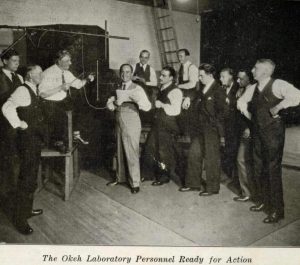
Studying history often comes with an inevitable fact that we will never be able to communicate with the people we are interested in. As frustrating
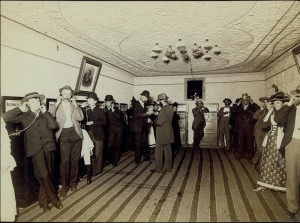
Between the 1820s and the early 1890s, the Five Points slum was the most feared neighborhood in New York. It was, however, the most diverse
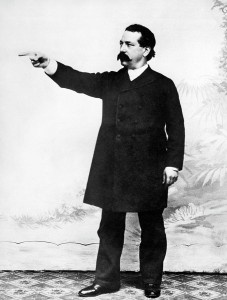
Musicians who worked in phonograph studios in the acoustic era were basically forced to fend for themselves for pay. The Musicians’ Union as we know
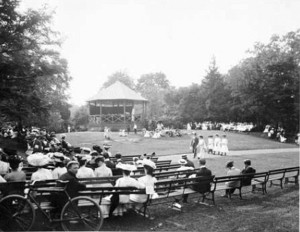
For over eight months, I have lived in the Bronx, specifically the neighborhood of Morrisania. Nothing is quite as exciting and inspiring as living in
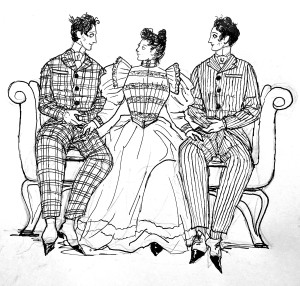
In the world of 19th century theater, there were many siblings who made their success by performing together. As the phonograph became a legitimate medium
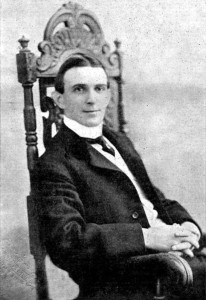
In the latter 19th century, a few daring publishers decided to try and combine their hustling status with the phonograph. In the 1890s it was
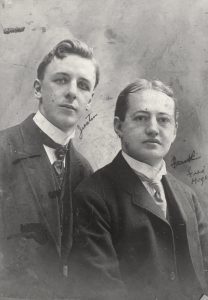
Since I moved to the Bronx back in September, I have been more inspired than ever to write and to draw. Living in the very